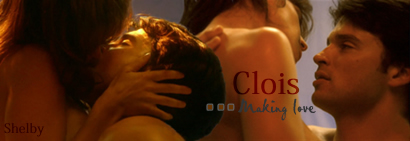“Scoring Smallville”: 9×02 – “Metallo”
The drive home from a spotting session always seems like a last luxurious moment of peace before battle. For the duration of that trip, I am absolved from all responsibility, at least until I arrive home, which will happen all too soon. This time, however, I cheat myself out of those last moments of relaxation, because I can’t stop thinking about the episode I have seen mere minutes ago. Metallo is edgy. Different. Things start out “normal” enough, but in no time Corben is hit by a truck. An out-of-nowhere event, so jarring and final, that it sets the tone for the entire episode. And then there is the bizarre aftermath. Seriously, waking up in a room, surrounded by surgical implements has to be one of the creepiest things yet to come from the fertile minds of the Smallville writers.
And so it becomes clear to me right there, in my car, as I daydream while driving just a tad too fast; Metallo is sound, not theme. An imprint, a signature if you will. And I better come up with something, and fast.
No matter how much we pretend otherwise, our studio setups reflect our predilections as composers. Mine is orchestral music. There’s no use denying it; my collection of instrumental sounds, my sound palette if you will, is biased towards that preference. I do need to explain a little about the mechanics of modern scoring in order to clarify and further illustrate what I’m talking about. Almost without exception, we in the business of composing music for television or film, use computers to do so. Perhaps one day I’ll devote an entire entry to explain the more esoteric, technical nature of the world that surrounds me, but for now I’ll keep things simple. The way music is transfered from an idea inside my head (or wherever such things germinate) to your television screen is by the use of a “musical” word processor. My fingers play musical ideas on a piano-style electronic keyboard, which in turn sends those musical notes to a computer, in much the same way as typing words on a computer keyboard does. Once in the computer, I can edit those notes in any conceivable way. An oboe started too early? I shift it backwards. Perhaps the third note of that piano melody could be F# instead of E… done. How would this entire piece sound if I played it a little faster? Like this! The software used for this purpose, the “musical” word processor, is called a sequencer, and part of the sequencer’s setup, is an instrumental palette. Think font choices in a word processor. This palette consists, in my case, of a myriad of orchestral instruments. Every conceivable type of woodwind, brass, string and percussion instrument reside there. At the push of a button, I can “play” a flute on my keyboard, or strings, or a piano or or or. But now I stare at my fine collection, which has taken many years to accumulate and refine, and realize that Metallo has a different set of sonic requirements entirely.
The next few hours are spent looking for sounds. Different sounds. Metallo sounds, whatever that may be, I’m certainly not sure yet. One thing seems clear in my own mind; a man-machine, a tortured creature of that sort, will require, musically speaking, a soundscape of metallic and industrial sound. The search is on, and a day later, I have my collection. But I also have one less day in which to write the score. Such are the daily tradeoffs we make.
The process is always the same; I sit, I stare, I ponder (or not), and I commit a musical idea to my sequencer. I must commit, and do so now. It’s a balancing act. Time vs. quality. The trick is to spend *just the right amount* of time in creating a musical thought. Just enough and not a second more, because once that musical idea exists out of my head and in the real world, the next one has to be arrived at. Quickly. Act one begins to take shape in this way, but my spotting notes remind me that there are five acts in an episode of Smallville. Five. To spend more than just the right amount of time writing act one music is foolish. Balance.
Metallo himself (itself?) is not my only concern, it turns out. There’s also Lois. Her feelings for Clark are becoming more tangible, or so it seems to me. That means writing music with the sort of feeling that such strong emotions require. I will freely admit this; I enjoy writing such music. I enjoy it because I have to tap into the emotion itself, in order to express it musically. Who doesn’t like love, right! Sometimes the ideas flow quite easily. I sit down, watch the scene, and then the music comes. I’m more spectator than composer when that happens, watching my own musical thoughts unfold. And then there are the other times.
Tuesday arrives just like it did last week and it will next, leaving me with a handful of minutes yet to write. Clark and Chloe are in the Watchtower. The mood is so pensive, so serene. I think *strings* to get in that mood, that world. But a little repeated piano figure emerges. It just – does. My hand goes to the keyboard, and without intervention from my head, it starts playing it. And I like it. It’s moody and serene, and yet it propels. Then, the acoustic guitar. Not a typical choice, but it has a life of its own. It brings an emotional element that I start to really like. It punctuates the dialog. It takes all of 10 minutes to find the notes, and notes sometimes don’t like to give up their secrets easily. Before I have time to worry about the relentless deadline, I’m done. I listen. It’s good. I’ve committed.
http://www.smallvillepodcast.com/2009/1 ... #more-2401 












